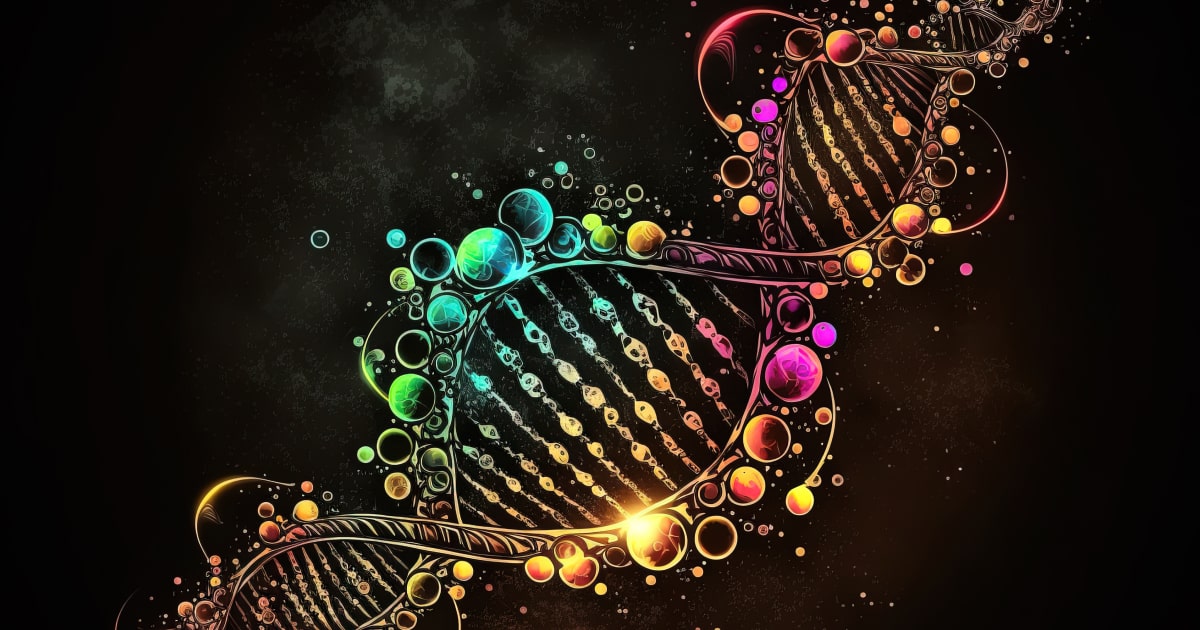
Expert Reviewed By: Dr. Brandon Colby MD
Dowling-Degos disease 4 (DDD4) is a rare genetic skin disorder characterized by reticulate hyperpigmentation primarily affecting the flexural areas of the body. This condition is often underdiagnosed due to its subtle presentation and similarity to other dermatological conditions. Recent advancements in genetic testing have shed light on the underlying causes of DDD4, offering hope for more accurate diagnosis and understanding of this complex disease.
The Genetic Underpinnings of Dowling-Degos Disease 4
Historically, the exact genetic basis of DDD4 remained elusive. However, a recent study has identified mutations in the PSENEN and NCSTN genes as significant contributors to the development of this disorder. These genes play a crucial role in the Notch signaling pathway, which is essential for cell differentiation and proliferation. Disruptions in this pathway can lead to the characteristic skin changes observed in DDD4.
How Genetic Testing Can Transform DDD4 Diagnosis
Early Detection and Diagnosis
Genetic testing allows for the early detection of DDD4, even before the clinical symptoms become apparent. By identifying mutations in the PSENEN and NCSTN genes, healthcare providers can diagnose the disease with greater accuracy. Early diagnosis is crucial for managing symptoms and preventing potential complications associated with the disorder.
Personalized Treatment Plans
Understanding the genetic mutations involved in DDD4 enables dermatologists to tailor treatment plans to individual patients. Genetic testing results can guide the choice of therapeutic interventions, ensuring that patients receive the most effective treatments for their specific genetic profile. This personalized approach can improve outcomes and enhance quality of life for those affected by the disease.
Family Planning and Genetic Counseling
For families with a history of DDD4, genetic testing offers valuable insights into the risk of passing the disorder to future generations. Genetic counseling can help families understand the inheritance patterns and make informed decisions about family planning. This proactive approach empowers individuals with the knowledge needed to manage their genetic health responsibly.
Advancing Research and Understanding
Genetic testing not only benefits individual patients but also contributes to the broader scientific understanding of DDD4. By identifying and cataloging genetic mutations associated with the disease, researchers can explore new avenues for treatment and prevention. This collective knowledge fosters innovation and may lead to the development of novel therapies in the future.
Conclusion
The identification of PSENEN and NCSTN gene mutations as causes of Dowling-Degos disease 4 marks a significant advancement in dermatological genetics. Genetic testing has emerged as a powerful tool in diagnosing and managing this rare skin disorder. By enabling early detection, personalized treatment, and informed family planning, genetic testing holds the promise of transforming the lives of individuals affected by DDD4. As research continues to unfold, the insights gained from genetic testing will undoubtedly pave the way for a deeper understanding and more effective management of Dowling-Degos disease 4.
For further reading, you can access the study that identifies these genetic mutations and their implications in the Notch signaling pathway: Read the study here.
About The Expert Reviewer
Dr. Brandon Colby MD is a US physician specializing in the personalized prevention of disease through the use of genomic technologies. He’s an expert in genetic testing, genetic analysis, and precision medicine. Dr. Colby is also the Founder of and the author of Outsmart Your Genes.
Dr. Colby holds an MD from the Mount Sinai School of Medicine, an MBA from Stanford University’s Graduate School of Business, and a degree in Genetics with Honors from the University of Michigan. He is an Affiliate Specialist of the American College of Medical Genetics and Genomics (ACMG), an Associate of the American College of Preventive Medicine (ACPM), and a member of the National Society of Genetic Counselors (NSGC)